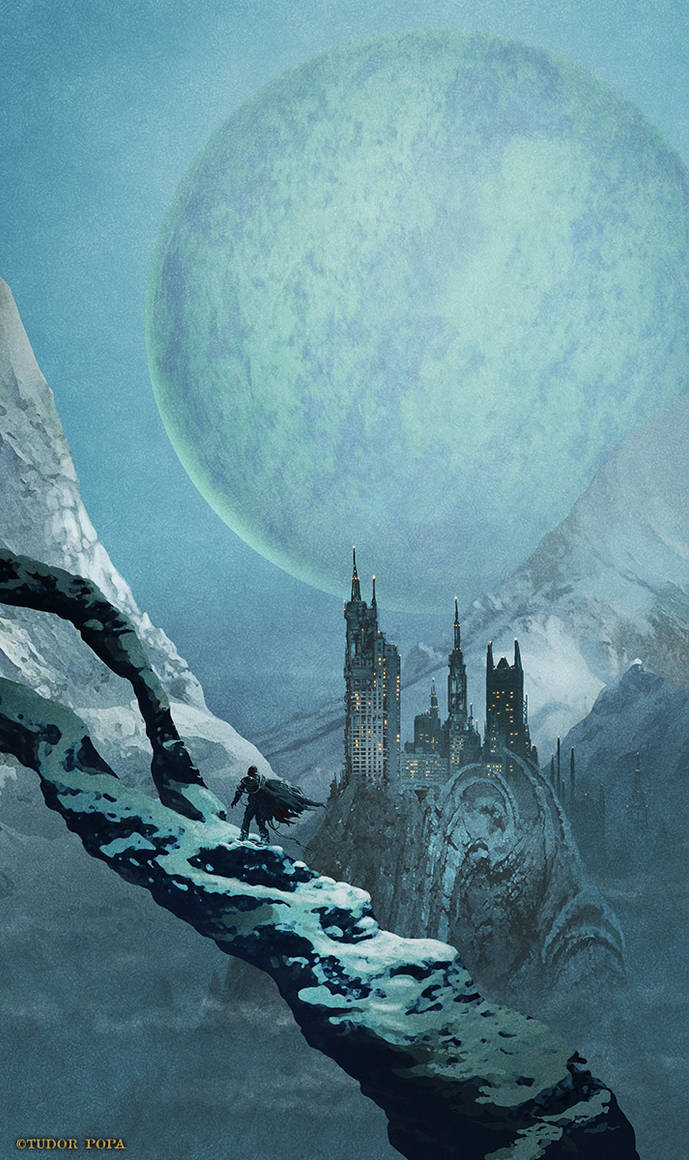LMST 345_Topic: The Fiction of Ideas_The Left Hand of Darkness By Ursula K. Le Guin
LMST 345
Topic: The Fiction of Ideas
Read: The Left Hand of Darkness By Ursula K. Le Guin
The Left Hand of Darkness, a 1969 science fiction novel written by Ursula K. Le Guin as part of a series in which Le Guin developed a fictional “Hainish” universe in order to publicly address several controversial ideas through the plot of fictional stories, she uses this novel to follow the orders of events, as they are experienced by the main character, Genly Ai. A Terra native sent as a delegate to the planet of Gethen, Genly, who was on a mission to persuade the nation to conjugate with the Ekumen, finds it not to be as easy as he thought when cultural differences begin to raise issues.
As one of the first books in the feminist Sci-Fi genre, this novel is notable for its open examination of sexuality in science fiction. One of the primary themes introduced throughout the book is the questioning of the effects of sex and gender roles play in effecting cultural and societal outcomes. Ursula K. Le Guin brings about these ideas by writing the people of Gethen to be ambisexual; meaning they are neither male nor female, or both, in correlation with their planet’s lunar cycles. “No physiological habit is established, and the mother of several children may be the father of several more.” (7.4) In the reading, this biological detail influences many cultural aspects of Gethen including politics, rituals/ traditions, and social norms, and ultimately generates barriers for Genly as he makes advances to join forces.
As the novel was composed from a feminist point of view, Ai’s character struggles to see things from the perspective of a Gethenian, not only because they are aliens but also because he views things from the point of view of a man with more generic standards. “ Though I had been nearly two years on Winter I was still far from being able to see the people of the planet through their own eyes.” (1.38) In trying to impose specific gender roles onto the Gethenians, Ai experiences extreme culture shock and realizes that the only way he will achieve his goal, is by accepting the fact that he would have to be open-minded and willing to integrate several cultural differences into his new plan for the universe. In The Left Hand of Darkness, Ursula K. Le Guin invites us to consider how deeply ingrained our ideas about gender are as well as to explore ideas about a society without them. I think that the idea within the idea of making the Gethenian species androgynous is that once you strip away inveterate ideas such as gender roles, we are all the same.
Other important themes of the novel include the exploration of politics and religion within these settings. In the novel, the two main religions are “Handdara” and “Yomeshta”. Comparing and contrasting them both, the major discrepancies pertaining to the proper use of knowledge. On one hand, the Handdara faith promotes “wholeness from opposites”. Much like a yin yang symbol, this religion is all about seeing both light and darkness as “necessary and useful”. Yomeshta, on the contrary, declares that there is only one worthy path to salvation, and it is to follow the light. These differences in beliefs become an issue, as they are exploited for various political benefits. “Therefore those that call upon the darkness are made fools of and spat out from the mouth of Meshe, for they name what is not, calling it Source and End.” (12.12) Described as an anti-political novel, The Left Hand of Darkness explores the similarities between the political governments, within the setting. Though each Gethen nation has its own political structure, many systems overlap ideas with other governments, emphasizing the idea that there is no true political system that will be suitable and fair for everyone. "What is the love of one's country; is it not the hate of one's own country? Then it's not a good thing. Is it simply self-love? That's a good thing, but one mustn't make a virtue of it, or a profession…." (15.87) This quote raises ideas about globalism/internationalism which is a government that puts the nation's interests above the interest of their own.
As applied to reality, all of the ideas addressed above play major parts in societal norms and actions of today. Revisiting the theme of sexuality, over the years, set gender roles has caused various controversial issues within society that we are only recently starting to counteract with a more open mindset. in contrast, other topics such as religion and politics still cause great conflicts amongst people, even today.

It's fair to think of the novel as narrated from a feminist point of view but for me, the book tries to construct a narrative about humans which reveals the way bodies condition perception of phenomena as well as culture...so gender matters to a point...but the book's virtue is that it tries to take us beyond the binary...it tries to represent something of a point of view which is outside gender and sexuality.
ReplyDelete